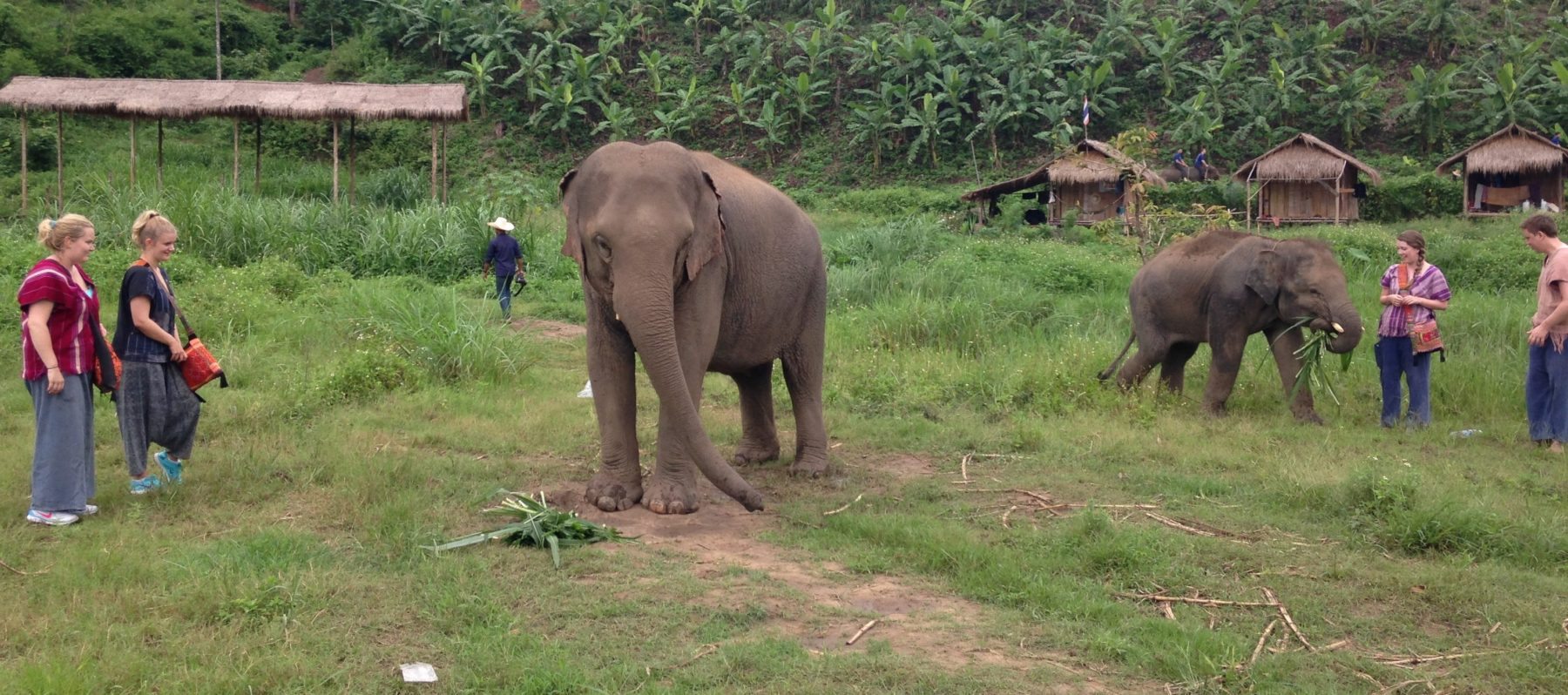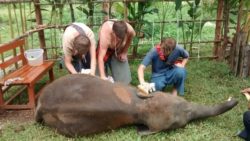The conscious traveller: Animal ethics in Thailand
Over the past few decades, Thailand has rapidly become the hub of exotic tourism and commercialism. The reasons for this are simple: it has the right climate, the right culture, and of course, the right blend of tropical vegetation and wildlife. Such an influx of foreigners has undoubtedly led to an immoral dealing of the tourist sector and a mistreatment of said wildlife; but is there a way of travelling this nation and experiencing all it has to offer in an ethical way?
I think everybody has gazed upon an elephant in the zoo and thought to themselves, “I wish I could get just a little bit closer… maybe touch its trunk, or ride on its back”. Just imagine how amazing it would be to sit atop this creature. The photo opportunity too. Incredible. This is the attitude exploited in the elephant parks of Thailand. While it may seem an unbelievable thing to do, there is a darker, unethical side to the treatment of elephants that most tourists are completely unaware of.
While it may seem an unbelievable thing to do, there is a darker, unethical side to the treatment of elephants that most tourists are completely unaware of
The Asian elephant is an endangered species. Its decline can be pinpointed to habitat loss as well as exploitation and illegal capture for use in the tourist trade. The industry survives by allowing the tourists to ride these creatures, and by forcing them to perform cheap circus tricks. Both these activities require training of the elephants which begins at a young age. Not only are these baby elephants stripped from their mothers, but they are exposed to horrendous methods of torture and isolation in order to break their spirit and allow them to be ridden; a process known as ‘Phajaan’ or ‘crushing’.
Aware of some the appalling handling of these animals, myself and two friends wanted to find an alternative to some of the big parks by visiting a park committed to the saviour and rescue of these animals. A place where, instead of having the elephants unfairly tailored to your own desires, you had to engage with them in a way that best benefits the animal. We found such a place just outside Chiang Mai in northern Thailand, called ‘Ran-Tong’ Elephant Park. There were two separate parks affiliated with Ran-Tong, one was an elephant riding facility and the other was a rehabilitation centre for babies, with riding prohibited. The latter was obviously our choice as we didn’t want to condone any forms of mistreatment. This ‘baby wing’ is a newer addition and I’m hoping that soon we will see the no riding policy enforced in the other camp as well.
The experience we had here was certainly unique. We began by getting dressed in clothing apparently suited to the day’s activities, which involved the feeding and bathing of a group of elephants, before the three of us would help in the rehabilitation of a rescued elephant after lunch. The elephant we were assigned to was named ‘Fah’ and he had a traumatic backstory; he was only two years of age but had already spent the majority of his life in cruel conditions in other camps before he was rescued. The signs of this cruelty were easily made visible by the scars across his head. We were essentially tasked with nursing these injuries by making a form of exfoliate scrub for his skin from mud and other key ingredients. After having massaged this into his skin, the three of us essentially bathed with the elephant in one of the parks homemade elephant showers. We managed to get a hands on experience with these animals in a way that was actually of benefit to them.
It is possible to have amazing experiences with some of Thailand’s rare and wonderful wildlife that doesn’t involve the inadvertent condoning of an immoral industry
As mentioned, the site we visited actually had a sister park where the riding of elephants was possible so I would still be sceptical when viewing these supposedly legitimate parks. We opted to avoid such activities but if you want to ride elephants in Thailand, the choice is of course yours. I am aware of the appeal of riding an elephant – I nearly went for it myself before I was made aware of the facts! However, I would implore people to be a little more aware of the phases that result in that one activity. It is possible to have amazing experiences with some of Thailand’s rare and wonderful wildlife that doesn’t involve the inadvertent condoning of an immoral industry.



Comments (3)
Thanks for the feedback and I’ll be sure to check out the links. The idea behind this article was to address a way of interacting with exotic animals- a fascination for many including myself- that differs from the conventional methods. It was designed to make people aware of these experiences and takes more of a ‘lesser of two evils’ approach in the experience I had. I’m aware that a no interaction policy is best for the animals but I’m similarly aware that thousands travel to Thailand yearly and pay these typically ‘unethical’ parks in exchange for the riding of elephants. I simply wanted to raise awareness that if you do want to interact with animals, there are means towards keeping the unethical side to a minimum. Sorry if the title misled you but thanks for reading and once again, thanks for your feedback!
Amy I think you have to be cautious of not being supportive of someone trying to be more ethical in their practices and sharing that with others. Education is how things change, but negative comments just cause people to close down. Sanctuaries for elephants have only been around a little over 20 years, before that most people were completely accepting of small zoo exhibits and circus shows. Change is something that needs to be encouraged and nurtured.
You are correct in that the only ethical elephant experience is one where there is no physical contact with elephants and visitors. These elephants don’t know the visitors and the brief interactions with them only take away from their time with other elephants. Unfortunately there is no sanctuary in Asia that doesn’t allow human interaction, including BLES. Their visitation is much more limited, but physical interaction with strangers is still allowed.
Hopefully one day there will be sanctuaries around the world where elephants are able to distance themselves from human presence, make their own choices and be able to immerse themselves back into the world of being an elephant.
Jordan — I have to say that given the title of your article, I was disappointed in the content.
The only ethical elephant experiences are those that allow NO close physical contact between visitors and elephants, especially if the elephant has been through traumatic experiences. Sorry to say this but how do you know how the elephant experienced your interaction? You don’t really.
Boon Lott’s Elephant Sanctuary (BLES) is the best in Thailand — http://www.blesele.org/
I also recommend visiting the Elemotion Foundation website to learn more about elephant tourism — http://www.elemotion.org/